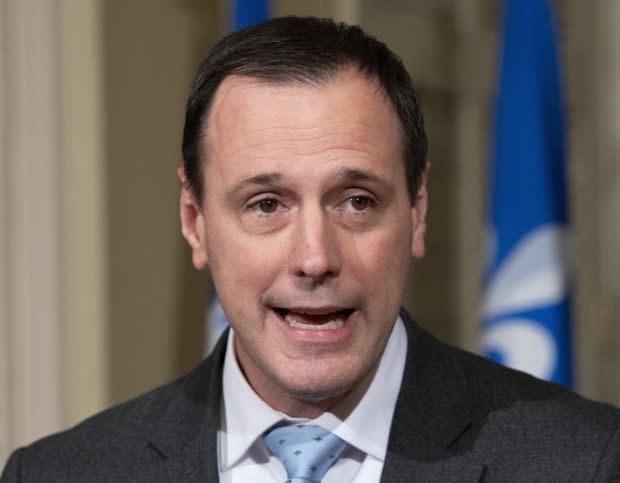Quebec education minister defends pre-K plan amid concerns over resources, ballooning cost
Too expensive, not enough classrooms and a shortage of teachers.
Despite those concerns, Education Minister Jean-François Roberge says he is moving forward with a plan to introduce kindergarten for four-year-olds across the province.
Public hearings for the proposed law, which was tabled in February, begin Monday at the National Assembly.
Over the next two weeks, lawmakers will hear from school boards, unions, parents' groups, experts and even an educator who helped roll out a similar program in New York City.
"We will listen to what everyone has to say to improve the law," Roberge said Monday on Gravel le matin.
"But we are doing it for our children. We are convinced that it is the best thing to do."
The CAQ government has promised to offer the program across the province within five years, starting with 250 more classrooms by next fall.
The new program will cost far more than originally promised: an estimated $800,000 per classroom, six times what the CAQ said it would cost during the election campaign.

The CAQ says pre-K will give children a head start, and that it will be easier to identify learning difficulties in a classroom than it is in daycare.
Roberge has stressed that parents will still be able to choose between daycare and pre-K, and he says opening schools to four-year-olds will ultimately free up 50,000 public daycare spots.
Put money into current programs, critics urge
The Commission Scolaire de Montréal (CSDM), the province's largest school board, is among those that have expressed concern about the proposal.
The CSDM, which is already facing a staffing shortage, would require 475 additional classrooms — the equivalent of 23 new schools — to introduce pre-K across its network, according to Radio-Canada.
Kindergarten for four-year-olds is currently offered to areas considered low-income, with about 5,000 students are enrolled across the province.
Critics say money would be better spent improving services already in place.
"We are asking the government to build on the current model and prioritize the development of kindergarten for four-year-olds, where it has the greatest impact, that is, with children from disadvantaged backgrounds," said Sylvain Mallette, head of the Fédération autonome de l'enseignement, one of the province's largest teachers' unions.
On Gravel, Roberge said much of the criticism stems from "pressure groups who have an interest in opposing it."
"That does not mean they are right," he said.
The hearings will take place Monday through Thursday this week and on Tuesday next week.

